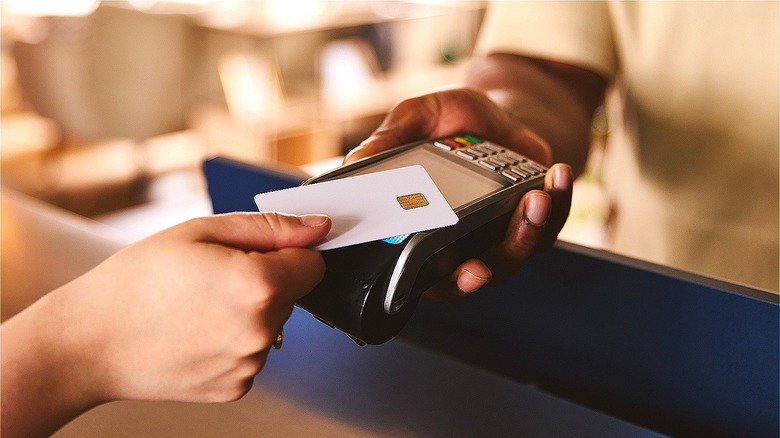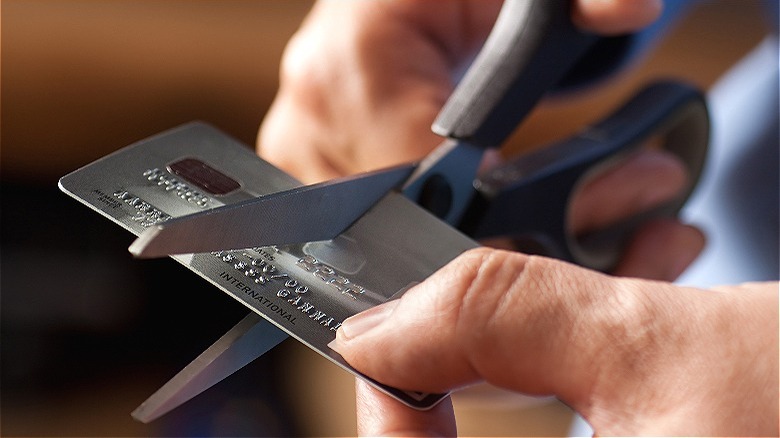Here's What Happens If You Exceed Your Credit Card Limit
Money Digest has often professed that responsibly using credit cards can give a boost to everyday spending via shopping rewards, points, and cash-back offers. That's not to mention how it can help to build a strong credit history or repair your credit from previous mistakes. Yet, there's a maximum to how much you can cumulatively charge to a single credit card, which is known as your credit limit.
As you make purchases with your card, the amount of each transaction is deducted from the card's limit, leaving you with a figure known as available credit. For example, your credit card has a $5,000 limit and you purchase a $1,000 television using the card. Your credit limit is still $5,000, but your available credit is now $4,000.
Credit limits are established by card providers when your account is opened, though they may be adjusted up or down over time by request or sometimes automatically should your financial situation change. To determine credit limits, card issuers look at personal information like income, plus data from your credit report. That can include your on-time payment history as well as the sum of other debt obligations or revolving credit, like other cards. So, what happens if you exceed the imposed credit limit, either deliberately or by accident? That largely depends on the issuer, and how your account is configured.
Check your account settings (and maybe opt in)
The consequences of exceeding your credit limit vary among different credit card issuers, and are also affected by account settings. In some cases, it may be possible to make charges on your card in excess of your credit limit without penalty. For example, Capital One prides itself on never charging customers fees for exceeding credit limits. That said, card issuers may opt to decline purchases that will drive your credit card balance in excess of your credit limit. Some credit card providers offer an online tool to determine the likelihood of a charge in excess of your credit limit being approved, so you can explore your options ahead of time.
Do be careful making charges in excess of your credit limit, though. Even if the issuer approves the charge, you could be facing a fee in the $25 to $35 range for exceeding your credit limit, depending on the card issuer's policy. In any case, that's assuming your account is enabled to make charges over the credit limit to begin with — a setting you must opt into. If your account isn't configured to allow over-the-limit charges, the card issuer can't rightly charge you a fee, even if an over-the-limit charge was inadvertently approved. If you're unsure, it's worth logging into your credit card's app or online portal to double check your account preferences.
Try not to ever carry a balance
Of course, the best policy is to avoid reaching or exceeding your credit limit to begin with. If you're carrying a large credit card balance, it is likely the interest rate charged on the balance is in excess of 20%, which is among the highest of any type of loan. By making minimum payments on your credit card, that pricey debt can take years to pay off.
Instead, consider shifting that balance to a new credit card (assuming you're eligible to open one) with a low- or zero-interest rate promotional period for balance transfers, which typically last six to 18 months. Then, cease spending on credit cards, in general, until you sufficiently pay down your balance(s). Additionally, consider reexamining your budget to avoid overspending or start a side-hustle to bring in some extra income.
On the other hand, it is possible to reach/exceed credit card limits even if your spending habits are responsible. For example, you might be using a credit card with rewards to pay for remodeling your kitchen (and accumulating valuable reward points along the way). Even though you plan to pay the credit card balance in full every billing cycle, purchasing appliances, new cabinets, and more in the same short period of time may result in you exceeding the card's credit limit. In that case, consider contacting the issuer to ask for a credit limit increase in advance of your project, particularly if the limit is prohibitively low and your financial status has improved since opening the account.


